Adarsh looks into the murky area of computer monitoring software that allow employers to surveil on their employees, often without consent
Jacob had a comfortable job in an IT firm that got a lot easier post Covid-19. He always loved working from home so when it became mandatory, he welcomed it with open arms. He used to finish work in half the time and had to pretend he was still occupied while he was still in office.
But from home, he could do what he wanted. So he took up a couple of freelance gigs. He would do those during office hours on his office laptop. That went on for a few months until out of the blue, HR set up a call with him.
On that call, his manager and the HR executive told him that he was guilty of using office resources and time for his own benefits and just like that, he was fired.
Apparently, unknown to him and his colleagues, the company had installed a monitoring software on all office laptops. The software could access, track and record every action that was performed on the laptop and that is how they caught wind of what Jacob was up to.
Two of his colleagues were also fired on the same day, for similar reasons.
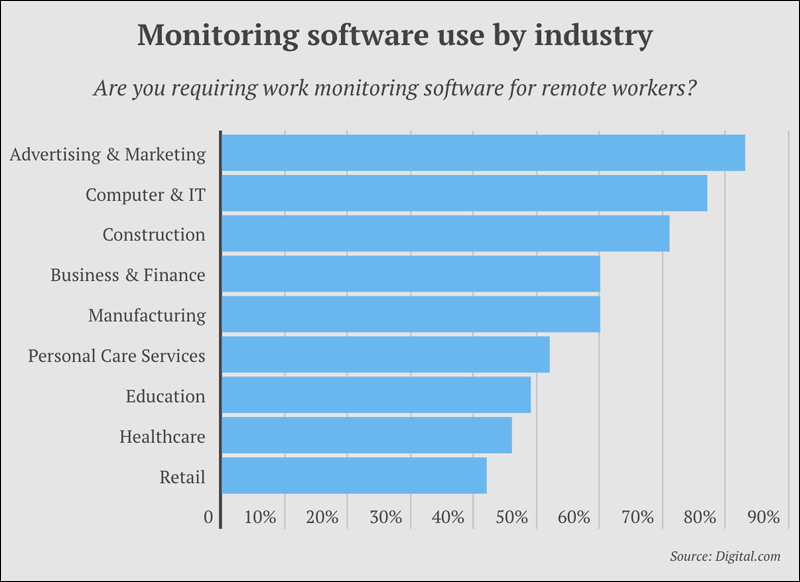
What is Bossware?
Bossware is the term used to describe a large family of employee tracking software. It keeps the employer informed about the amount of time the employee spends on individual tasks but it can also log keystrokes, record mouse movements, activate the microphone, take screenshots and even click webcam photos.
In an ideal scenario, the company does this with the employee’s knowledge and also mentions this in the contract that the employee signs on joining.
But there have been numerous cases where the employee has no idea about this at all.
How accurate is it?
Forget about being ethical, these employee tracking software are also not accurate either. While they can record keystrokes and monitor mouse movement, they fail to factor in all the things the employee does that are part of the job but do not involve the laptop.
For instance, if you are reading a printout or trying to solve a math problem on a piece of paper, the software is going to assume that you were not working during that time period. Even other intangible nuances of a job like ideation with teammates or alone with pen and paper, overseeing your reportees or meetings with clients cannot be accounted for.
So as far as the software and the employer is concerned, if you’re not typing into your laptop, you are not working.
In fact, one IT company in the US takes snapshots of the employees and their screens every 10 minutes, creating timecards to verify if they were actually working. Bad timecards showing interruptions or lack of digital activity would result in loss of pay for those 10 minutes.
This meant that when the tracker was on, a quick bathroom or a coffee run was also out of the question!
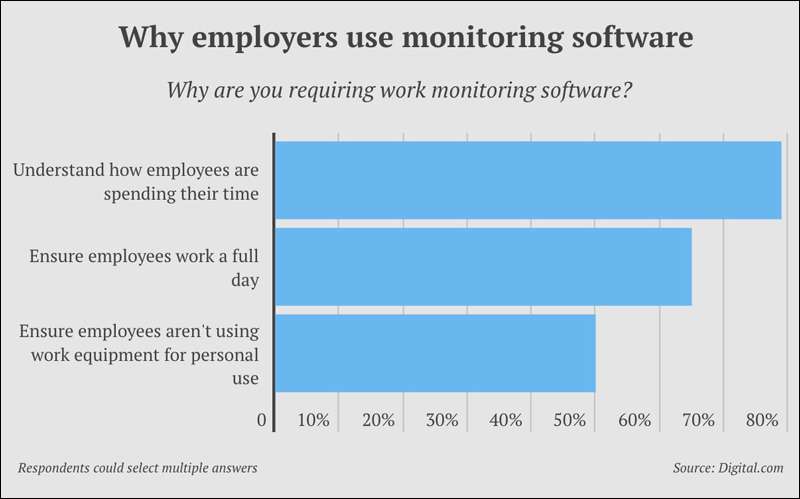
The Employers delight
The pandemic and the ensuing lockdown meant that companies couldn’t keep track of their employees’ activities the way they were able to when they were still in office.
A survey by Digital.com of 1,250 US companies found that 60 per cent were using some sort of tracking software. In fact, 9 out of 10 companies admitted to terminating employee contracts based on data from these software.
But they have their reasons for implementing such stringent rules and actions. The same study revealed that 53 per cent of employees who were being monitored spent over 3 hours every day on non-work related activities like watching Netflix or scrolling on social media.
81 per cent of the companies that have been implementing these software also claim that productivity has increased since employers were made aware of the tracking.
Long story short, ethical or not, accurate or not, the employers don’t seem to care. They are all in for the tracking!
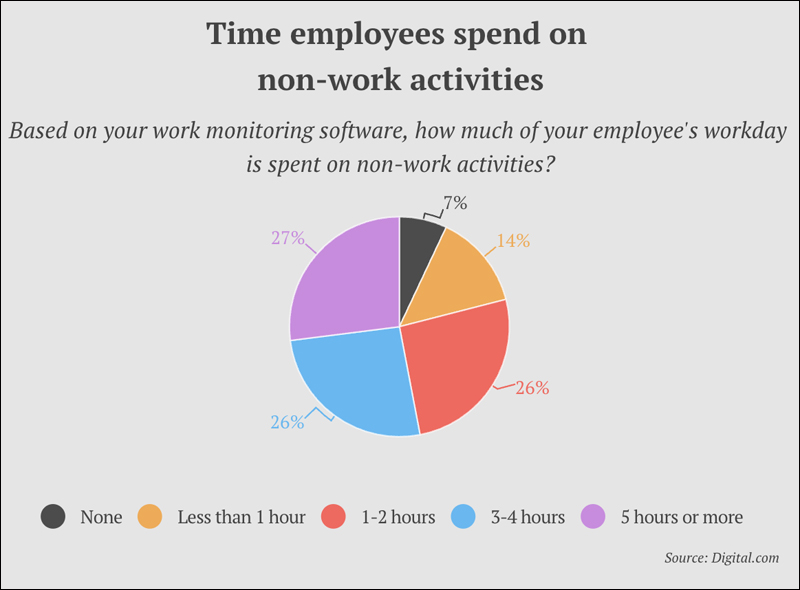
The Employees plight
Employees on the other hand are completely distraught. The company might be gaining accountability and efficiency thanks to these tracking software, but what they are losing out on is trust. With their every move being tracked and recorded, workers are finding it demoralizing, humiliating and toxic. It establishes the fact that micromanagement is the new standard.
It is also taking a psychological toll on the employees. Their sense of autonomy has been lost and in many cases, this is making them wonder if they should even bother working at a place like this. The issue is also that they don’t know if the next company they go to would be monitoring them without their knowledge.
Others are figuring out ways to beat the system. Mouse jiggling software like Liberty create the appearance of movement while some employees are using their personal laptop for freelance work or binge watching and periodically click on their work laptops to pretend to work.
There are many videos and articles on the Internet on how you can find out if you are being monitored and also how you can hack the system. Many companies in the US have also begun to unionize and protest.

The final word
Bossware is still in its infancy in India but it could be here sooner than we realize. In fact, for all you know, it’s already here and several companies are keeping tabs on their employees. They probably just don’t know about it yet.
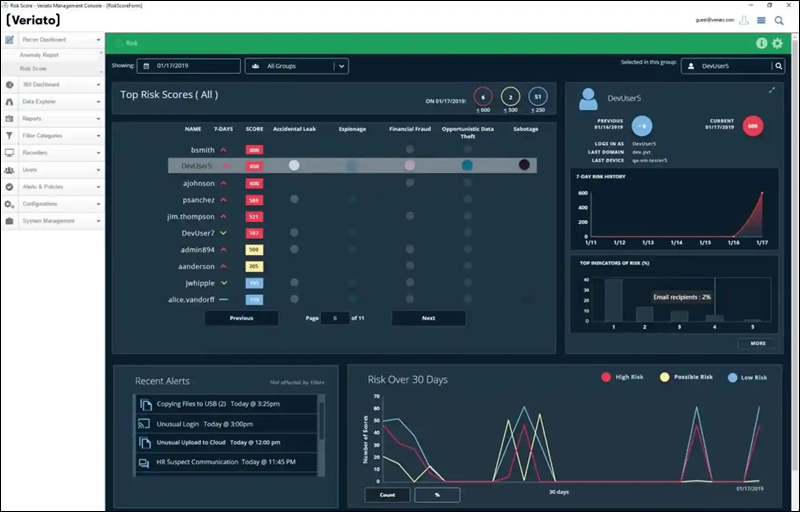
But either way it isn’t ethical and can lead to legal repercussions in the future, especially once the laws get amended.
How you treat your employees says a lot about you as an employer and going forward, that could be one of the considerations people have while picking a job, just like position, salary hike and other benefits.
In case you missed:
- Why are Companies resorting to Office Peacocking?
- Meta’s Puffin Project: Future of Mixed Reality in a Pair of Glasses
- 5 Free AI Assistants To Make Your Life Easier
- 15 Billion Transactions a Month! How UPI is transforming India’s Digital Economy
- OpenAI finally unveils its Advanced Voice Assistant!
- WhatsApp adds New Document Scanning Feature
- Is the Foldable iPhone Around the Corner?
- Cloudflare’s One-Click Solution for Image Verification
- Traditional Learning Making a Comeback? Kerala Bans WhatsApp Study Groups
- Active Listening Feature on Phones raises Privacy Concerns








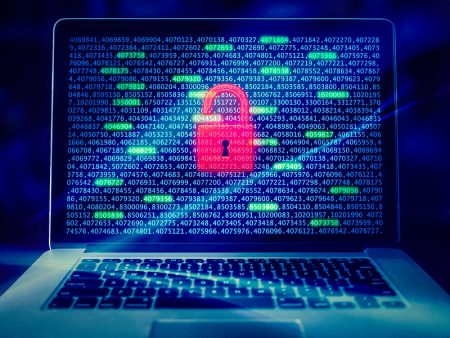
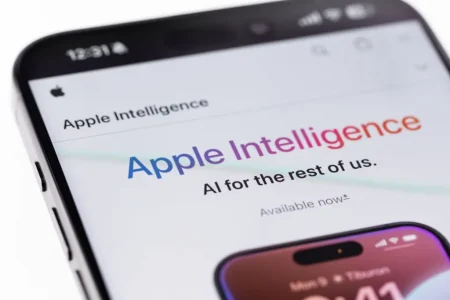
1 Comment
Hello Adarsh, this was a good read ! However I would like to point out what I believe may be a typo :
“81 per cent of the companies that have been implementing these software also claim that productivity has increased since employers were made aware of the tracking.”
“Employers” is used but shouldn’t it be the employees who were made aware of the tracking ?